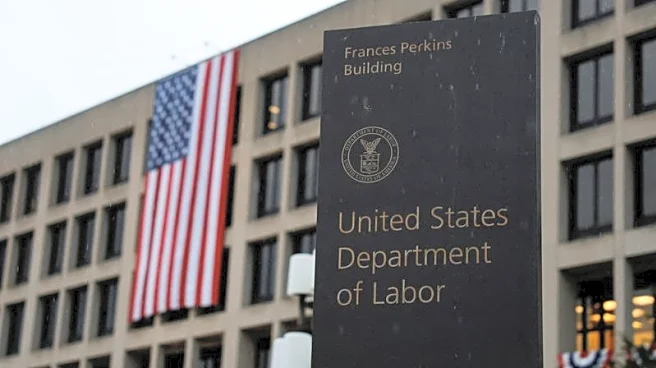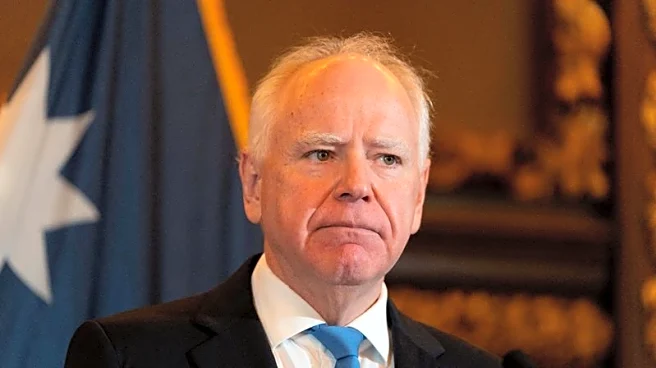What's Happening?
Jimmy Kimmel's television show was suspended by ABC following comments he made regarding the political reaction to the killing of Charlie Kirk. The suspension came after FCC Chairman Brendan Carr publicly urged broadcasters to take action against Kimmel. Carr's comments were made during an appearance on Benny Johnson's podcast, where he suggested that broadcasters could face challenges from the FCC if they did not address Kimmel's conduct. The FCC has significant regulatory power over television and radio stations, including the ability to grant, renew, or revoke broadcasting licenses. This power extends to major broadcasting companies like Nexstar and Sinclair, which operate numerous ABC affiliates. Nexstar is currently seeking FCC approval for a substantial merger, which may have influenced its decision to comply with Carr's suggestion.
Why It's Important?
The suspension of Jimmy Kimmel's show highlights the potential influence of government agencies over media companies, raising concerns about freedom of speech and the independence of broadcasters. The FCC's ability to regulate broadcasting licenses gives it considerable leverage over media companies, which can impact their programming decisions. This situation underscores the tension between government oversight and media autonomy, with implications for how political content is managed by broadcasters. Critics argue that Carr's actions may represent undue pressure on media companies to align with political interests, potentially compromising journalistic integrity and the principles of the First Amendment.
What's Next?
The suspension of Kimmel's show may prompt further scrutiny of the FCC's role in media regulation and its impact on free speech. Media companies might reassess their content policies to avoid conflicts with regulatory bodies, potentially leading to more cautious programming decisions. The ongoing merger involving Nexstar could be influenced by this situation, as the company navigates regulatory approval while managing its relationship with the FCC. Additionally, public and legal discourse may intensify around the balance between government influence and media independence, potentially leading to calls for policy reforms.
Beyond the Headlines
This incident raises broader questions about the ethical responsibilities of media companies in balancing business interests with editorial freedom. The role of government agencies in shaping media narratives could lead to long-term shifts in how content is produced and consumed. The case also highlights the cultural dimensions of political discourse in media, as companies navigate the complexities of public opinion and regulatory pressures. The implications for media governance and the protection of free speech rights may resonate beyond this specific event, influencing future interactions between media entities and regulatory bodies.










